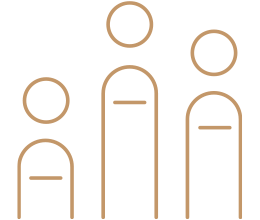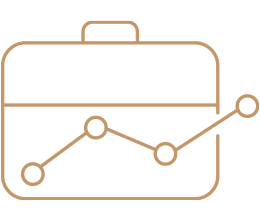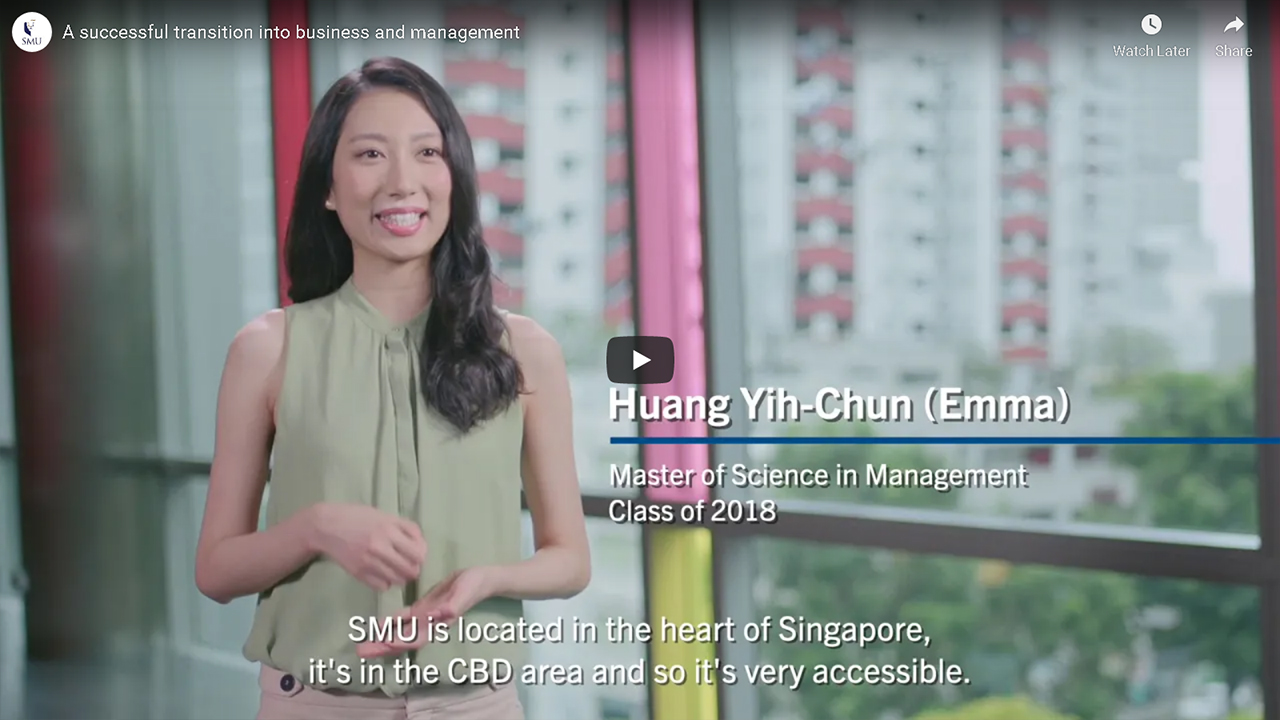Academic Excellence* | Global Awareness* | Leadership Potential | Community Impact | Impact on Asia | Women in Business | SMU-ASEAN
*All candidates are automatically submitted for consideration for Academic Excellence, Global Awareness & SMU-ASEAN scholarships upon meeting the scholarship criteria. No application is required.
Partial scholarships for the Master of Science in Management (MIM) programme entail award amounts up to S$15,000 of the tuition fee, with no bonds attached. The prevailing GST will still apply for the full tuition fee before the scholarship award.
SMU Alumni
SMU is committed to lifelong learning. Graduates from SMU undergraduate or postgraduate programmes are automatically eligible for an alumni discount of S$8,000 when applying to the MIM programme.
Singapore Local Autonomous University
Graduates from the following local universities: National University of Singapore (NUS), Nanyang Technological University (NTU), Singapore University of Social Sciences (SUSS), Singapore University of Technology and Design (SUTD), or Singapore Institute of Technology (SIT). are automatically eligible for an alumni discount of S$4,000 when applying to the MIM programme.
Eligible candidates may receive exemptions for up to four credit units, with a discount of $3,000 awarded for each credit unit exempted.
SG/PR
Singaporean citizens and Permanent Residents are eligible for a one-time discount of S$5,000.
ASEAN Citizens
ASEAN citizens are eligible for a one-time discount of S$3,000.
(Brunei Darussalam, Myanmar, Cambodia, Indonesia, Laos, Malaysia, Philippines, Thailand, Vietnam)
Corporate Partner
Eligible company-sponsored candidates are eligible for a one-time discount of S$6,000.
Contact our admissions team to discuss your eligibility.
- The above discounts are applicable to students joining the programme from the January 2025 intake onwards.
- Each student is only eligible for one discount. Should a student qualify for more than one discount, only the higher discount will be applicable.
- The above tuition fee discount is deductable before Goods and Services Tax (GST).
- SMU reserves the right to change these exemptions at any point in time.





















